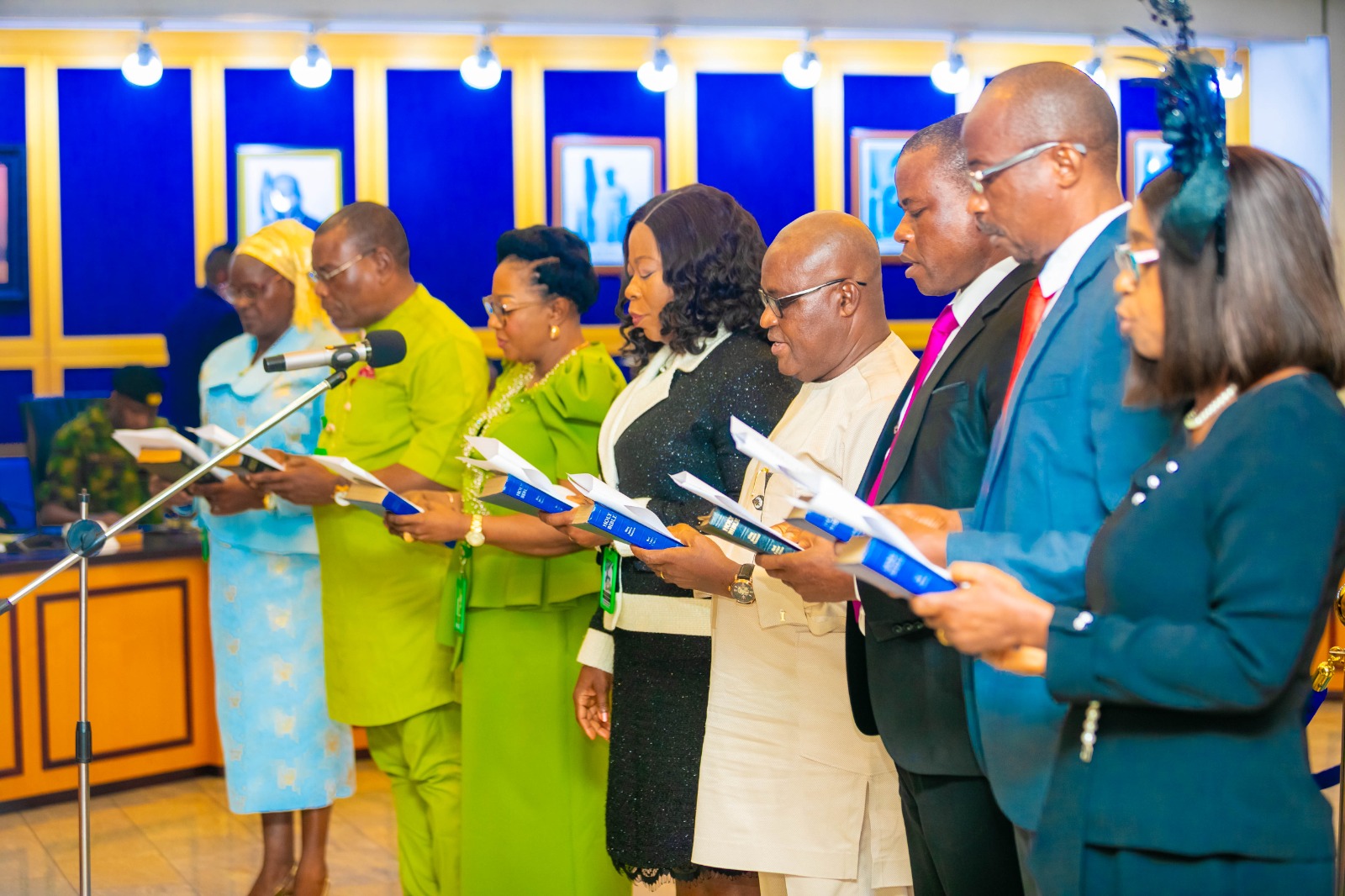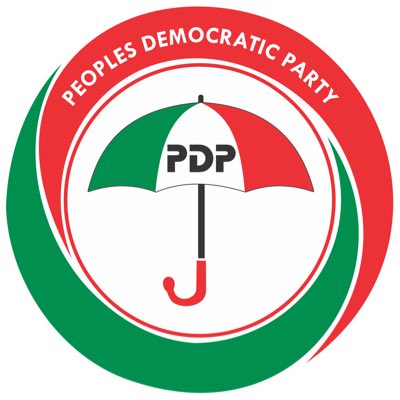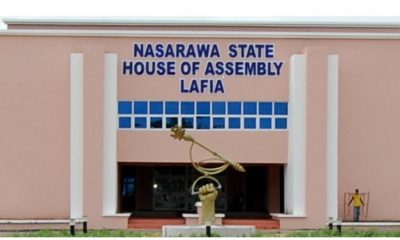News
Reps Move To Revert Nigeria To Parliamentary System
A bill to amend the 1999 Constitution of Nigeria to reintroduce a parliamentary system of government has passed first reading in the House of Representatives.
The bill sponsored by 71 members seeks to change the system of government from presidential to parliamentary where the government will be run by the parliament.
One of the major differences between these two systems is that in a presidential system, the president is directly voted into power by the people while in a parliamentary system, the legislature is supreme and elects a prime minister from among members of parliament as head of government.
There is also no clear separation of powers in the system between the legislature and the executive as the ministers are also appointed from parliarment.
Nigeria practised the British-styled “Westminster” parliamentary system until the collapse of the First Republic on January 15, 1966 when the military took power.
The 1979 Constitution introduced the country to the US-styled presidential system of government, with framers of the constitution largely citing the tensions and acrimonious politics of the First Republic as reasons.
Prominent amongst the sponsors of the bill are Abdussamad Dasuki (PDP, Sokoto), Tahir Monguno (APC, Borno), Nicholas Ossai (PDP, Delta), Ossey Prestige (APGA, Abia) and Kingsley Chinda (PDP, Rivers).
Addressing journalists at the National Assembly yesterday, the lawmakers said the parliamentary system of government will help achieve economic growth and development in the country.
“We are 71 bi-partisan members of the House of Representatives, who feel that the parliamentary system of government promulgated by the Lyttleton Constitution of 1954 is the best for Nigeria since the presidential system has reduced us to the poverty capital of the world.”
The lawmakers further said the parliamentary systems helps in quick passage of economic bills due to the fusion of power that it embodies.
“Studies have shown that countries run by presidential regimes consistently produce: lower output growth, higher and more volatile inflation, and greater income inequality relative to those under parliamentary ones.”
“Presidential regimes consistently produce less favourable macroeconomic outcomes which prevail in a wide range of circumstances for example in Nigeria.”
“Due to the excessive powers domiciled to one man under the presidental systems, consensus building that is often required for economic decision is always lacking.”
“The level of liability and volatility of presidential systems makes it difficult to achieve economic objectives.”
The lawmakers said the parliamentary systems promote inclusion and collectiveness “which is critical to equality of income distribution and opportunities.”
The lawmakers consist of members of the Peoples Democratic Party (PDP), All Progressives Congress (APC), All Progressives Grand Alliance (APGA) and African Democratic Congress (ADC).
Abdussamad Dasuki, prominent amongst the 71 sponsors of the bill, said the bill was deliberately brought towards the campaigns so that Nigerians could ask questions during the campaigns.
He said a lot of other members have keyed into the idea.
He said the debate of the bill will come up probably after the 2019 general elections.
He expressed optimism that majority of his colleagues and state houses of assembly would endorse the bill.
The bill, if passed, will however require the assent of the president to become law and be enshrined in the Constitution.
If the president declines to assent, the National Assembly can override his veto with the votes of two-thirds of the members.
The current National Assembly in 2017 passed a series of amendments to the Constitution, some of which President Muhammadu Buhari signed after they passed through necessary endorsement by at least 24 state houses of assembly.
News
Ibas Inaugurates RSIEC, Service Commissions, Healthcare Board In Rivers …Charges Appointees To Embrace Principles Of Service

The Administrator of Rivers State, Vice Admiral (Rtd) Ibok-Ete Ibas, has charged newly appointed Board members to uphold the highest standards of discipline, competence, integrity, and unwavering dedication in their service to the State.
He emphasized that such commitment is critical to stabilizing governance, restoring democratic institutions, and advancing the principles of good governance in the State.
This was contained in a statement by the Administrator’s Senior Special Adviser on Media, Hector Igbikiowubo on Monday.
Ibas issued the charge on Monday while inaugurating the reconstituted Rivers State Independent Electoral Commission (RSIEC), Rivers State Civil Service Commission, Rivers State Local Government Service Commission, and the Rivers State Primary Health Care Management Board at Government House, Port Harcourt.
The Administrator urged the new appointees to embrace their roles with diligence, patriotism, and a commitment to transforming Rivers State through excellent service.
Addressing the Chairman and members of RSIEC, Ibas underscored their pivotal role in ensuring credible local government elections that reflect the will of the people.
“Your task is clear but demanding: to conduct free, fair, transparent, and credible elections at the grassroots level. You must resist bias, favoritism, and external interference while restoring public confidence in the electoral process,” he stated.
“The independence of your actions is crucial to sustaining peace, stability, and grassroots governance. I urge you to act with fairness, impartiality, and professionalism—even in the face of difficult choices,” Ibas added.
The Sole Administrator also charged the Rivers State Civil Service Commission on the need to eliminate mediocrity and foster a culture of excellence through merit-based recruitment, training, and promotions.
“The civil service must transition from favoritism to competence, integrity, and accountability. Your commission will lead reforms, including digital transformation and standardized practices across ministries, departments, and agencies,” he said.
He disclosed that extensive training programmes are underway, with a committee set up to overhaul the public service framework for greater efficiency.
Meanwhile, Ibas urged the Rivers State Local Government Service Commission to ensure professionalism and discipline in local government administration.
“As the closest tier of government to the people, you must drive reforms that insulate the system from politics and mediocrity. Your mandate includes merit-based recruitment, training, and enforcing standards for effective service delivery,” he stated.
In the same vein, the Administrator charged the Rivers State Primary Health Care Management Board with revitalizing healthcare delivery across the state’s 23 local government areas.
“Primary healthcare is the foundation of a sustainable health system. Your board must ensure facilities are adequately staffed, equipped, and operational focusing on maternal health, immunization, malaria control, and community health services,” he said.
He emphasized data-driven operations, incentives for rural health workers, and restoring the referral system to improve healthcare access.
He also assured the Board of sustained government support, including funding, for the effective discharge of their mandates but warned that board members would be held accountable for their performance.
The newly inaugurated members include: RSIEC: Dr. Michael Ekpai Odey (Chairman) with Prof. Arthur Nwafor, Prof. Joyce Akaninwor, and others as members.
Civil Service Commission: Dr. Livinus Bariki (Chairman), Amb. Lot Egopija, Mrs. Maeve Bestman, and others.
Local Govt. Service Commission: Mr. Isreal Amadi (Chairman), Rear Adm. Emmanuel Ofik (Rtd), Dr. Tonye Pepple, and others.
Primary Health Care Board: Dr. Dawari George (Chairman), Dr. Chituru Adiele (Executive Director), Prof. Kaladada Korubo, and representatives from key ministries.
News
Rivers PDP Debunks Sale Of LGA Election Forms

The Publicity Secretary of the Peoples Democratic Party (PDP) in Rivers State, Dr. Kenneth Yowika, has debunked claims that the party has commenced sale of forms for chairmanship and councillorship elections across the 23 local government areas of the state.
Yowika made the rebuttal in a statement made available to newsmen on Wednesday, describing the publication on the social media as baseless and untrue.
He urged members of the PDP to disregard the claim, saying that official communication regarding the sale of forms would be disclosed through the appropriate channels.
“With reference to information trending on social media, it has been falsely claimed that the sale of forms for Chairmanship and Councillorship elections in the 23 Local Government Areas (LGAs) of Rivers State will begin soon.
“However, the party has firmly denied these rumours, stating that they are baseless and untrue.
“The party has its own established methods of reaching out to its numerous supporters.
“The People’s Democratic Party, a law-abiding organisation, will patiently await the release of guidelines from the recently inaugurated Rivers State Independent Electoral Commission (RSIEC) before considering any sale of election forms.
“The PDP is urging its members to remain calm as official communication regarding the sale of forms will be disclosed through appropriate channels,” the statement read.
Enoch Epelle
News
South-South contributes N34trn to Nigeria’s economy in 2024 – Institute
Prof. Pius Olanrewaju, President of the Chartered Institute of Bankers of Nigeria (CIBN), has stated that the South-South region contributes N34 trillion to country’s economy in 2024.
He made the remark at the South-South Zonal Banking and Finance Conference in Calabar, yesterday.
He spoke on the theme, ‘’Building An Inclusive South-South: Economic Diversification as a Catalyst For Development.’’
Olanrewaju, who quoted the data from the Cable Data Index, said the feat was more than 21 per cent of Nigeria’s real Gross Domestic Product (GDP).
The president described the growth as ‘’ impressive,’’ saying that it was not driven by oil alone but significant expansions in trade, services, and the creative industries.
According to him, to fully harness this potential, coordinated financial, technological, and policy support is essential.
“As we work to reposition the South-South for broad-based prosperity, the financial system must play a central role, not merely as a source of capital, but as a catalyst for innovation, ideas incubation, and inclusive economic growth.
“This conference, therefore, provides a strategic opportunity for stakeholders to reimagine the South-South economy, not merely as a resource belt, but as a region of diverse capabilities and resilient enterprises.”
Olanrewaju added that Nigeria must move beyond old models and chart a new course for the development of the South-South region, where financial institutions and stakeholder collaborate to diversify the economy for shared prosperity.
He, however, commended Gov. Bassey Otu for his pledge of land for CIBN Secretariat in Cross River and being the first sitting governor to willingly undergo and complete the Chartered Bankers Programme.
On his part, Gov. Otu said that the conference discussion on the economic diversification in South-South region was timely against the backdrop of global trade and economic volatility that was affecting the nation’s economy.
Represented by his deputy, Mr Peter Odey, Otu said the South-South region must now act with urgency to diversify its economy while leveraging its shared natural endowment in agriculture and extractive resources.
“This conference must help develop tailored financial solutions that reflect the unique strengths and realities of states like Cross River in the south-south.
“Diversification should be evidence-based and must be backed not just by financial advice but project focused financing and real investment support,” he noted.
He said that Cross River had taken the bold step to invest in its agricultural sector by launching an Agro processing hub.
Otu further said that the state had invested in aviation by acquiring more aircrafts for Cally Air, construction of the Bakassi Deep Seaport and injecting N18 billion in its tourism sector.
Similarly, Mr Tolefe Jibunoh, Cross River Branch Controller of the Central Bank of Nigeria (CBN) said that the region was blessed with natural resources, cultural diversities and immense human potentials.
Jibunoh, who was represented by Mr Segun Shittu, Head, Currency Control Office, CBN, Calabar, noted that strategic diversification could unlock unprecedented opportunities for growth in the region.
He added that the CBN remained steadfast to maintain monetary possibilities and promote a sound financial system as a catalyst for sustainable economic development for the benefit of all.
-

 Politics16 hours ago
Politics16 hours agoNasarawa Speaker Advocates Conducive Executive/Legislature Relations
-

 Business19 hours ago
Business19 hours agoIndustry Leaders Defend Local Content, … Rally Behind NCDMB
-
Niger Delta19 hours ago
Delta Leverages On Extensive River Networks To Drive Blue Economy
-
News17 hours ago
FG Renames University of Maiduguri After Buhari …As Tinubu Pours Encomiums On Late President
-

 News16 hours ago
News16 hours agoRivers PDP Debunks Sale Of LGA Election Forms
-
News19 hours ago
PCRC Dismisses Claims Of Police Strike As Fake, Mischievous
-
Niger Delta19 hours ago
Bishop Mocks Fake Prophecy Seekers … As Priests Relive Challenges At Ordination Ceremony
-
Rivers17 hours ago
Motor Spare Parts, Industrial Generators Dealers’ Union Swears Gets New Chairman in Port Harcourt

